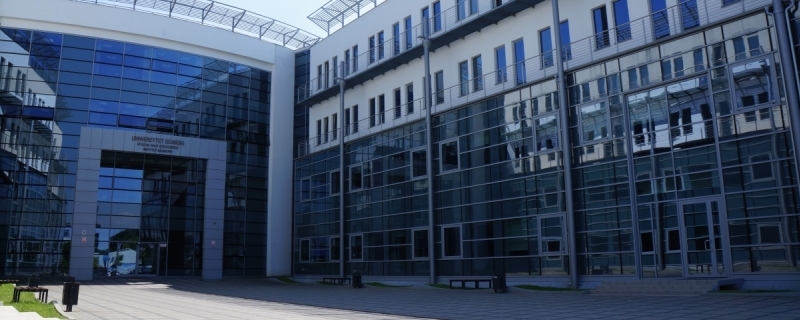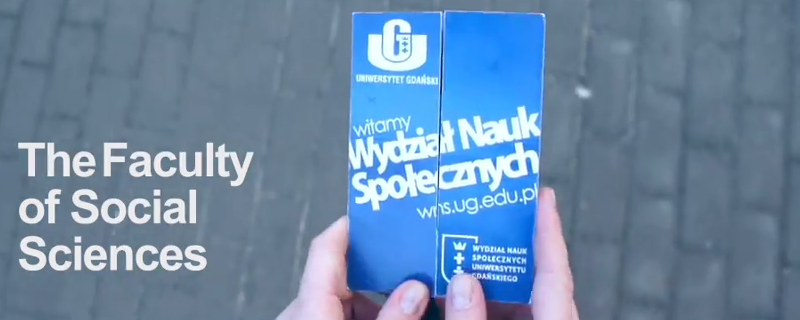About Us
About Us

ABOUT THE FACULTY
The history of social sciences in Gdańsk dates back to the 1940s, when pedagogy and psychology classes for future teachers were held at the colleges that were the predecessors of the University of Gdańsk. Over the years, new fields of study and organisational units have been created related to the scientific disciplines: pedagogy, psychology, philosophy, sociology and political sciences. They were present in the structure of both the Pedagogical University (transformed from the State Pedagogical University in 1952) and the University of Gdańsk established in 1970. For 20 years, disciplines in the field of social sciences have been developed within the Faculty of Humanities of the University of Gdańsk.
The Faculty of Social Sciences as a basic organisational unit began to operate on 1st December 1990, on the basis of Ordinance No. 5/R/90 of the Rector of the University of Gdańsk of 24th January 1990 (with future amendments). Since 2009, it has been based at 4 Bażyński St.
Currently, the faculty consists of 7 institutes:
- Institute of Philosophy
- Institute of Socio-Economic Geography and Spatial Management
- Institute of Media, Journalism and Social Communication
- Institute of Pedagogy
- Institute of Psychology
- Institute of Political Science
- Institute of Sociology
The academic and teaching staff of the Faculty of Social Sciences are made up of eminent scientists, who publish in prestigious journals, often of international scope. We also invite specialist practitioners to cooperate with us. The faculty constantly cooperates with research units, educational and health care institutions, local government units and employers, both at home and abroad.
The leading scientific disciplines at the Faculty are: philosophy, political and administrative sciences, sociological sciences, social communication and media science, pedagogy and psychology. Research is also carried out in the fields of: social communication and media science, cultural and religious studies, and security studies. Research conducted by the employees of the Faculty is of great practical and social importance. This facilitates the discovery of the sources of many social phenomena and the identification of areas in which individuals or groups may need support. The research results are implemented in various ways, including in the form of new diagnostic and therapeutic tools, communication and cooperation strategies, education development programmes, psychological support programmes, health promotion and others.
The faculty offers 24 fields of study, including two in English. Candidates can choose from undergraduate and postgraduate studies as well as uniform master's studies, both full-time and part-time. The offer includes practical subjects ensuring comprehensive preparation for a profession, as well as unique specialisations. All fields of study have been positively assessed by the Polish Accreditation Committee (Psychology rated as outstanding). International cooperation is constantly being developed through mobility programmes for academics and students, including the ERASMUS + programme, which enables, among other things, trips for educational purposes or apprenticeships. Graduates of higher education can take advantage of the rich offer of post-graduate studies (over 20 fields of study), of which 7 entitle participants to take state or international exams to obtain certificates.
The faculty building and its facilities are an undoubted advantage of the Faculty of Social Sciences. The Faculty’s building is equipped with modern didactic and specialist rooms, including: computer rooms, art and music and theatre rooms, a relaxation room, therapeutic rooms with one-way mirrors, a Psychological Diagnostics Laboratory with research tools rental, a Psychomotor Research Laboratory and a Psychoneurophysiological Research Laboratory. Students of journalism and social communication have at their disposal a professional photo studio, as well as a modern laboratory for the simulation of television recordings and film documentation. Students can also learn the secrets of a radio journalist's work at Radio MORS, which is based at the Faculty of Social Sciences.
Social sciences are necessary wherever contact with other people is involved. They play an important role in understanding the processes that guide the functioning of the individual, group and society. In this way, they contribute to building a better quality of life for the human being among other people.





